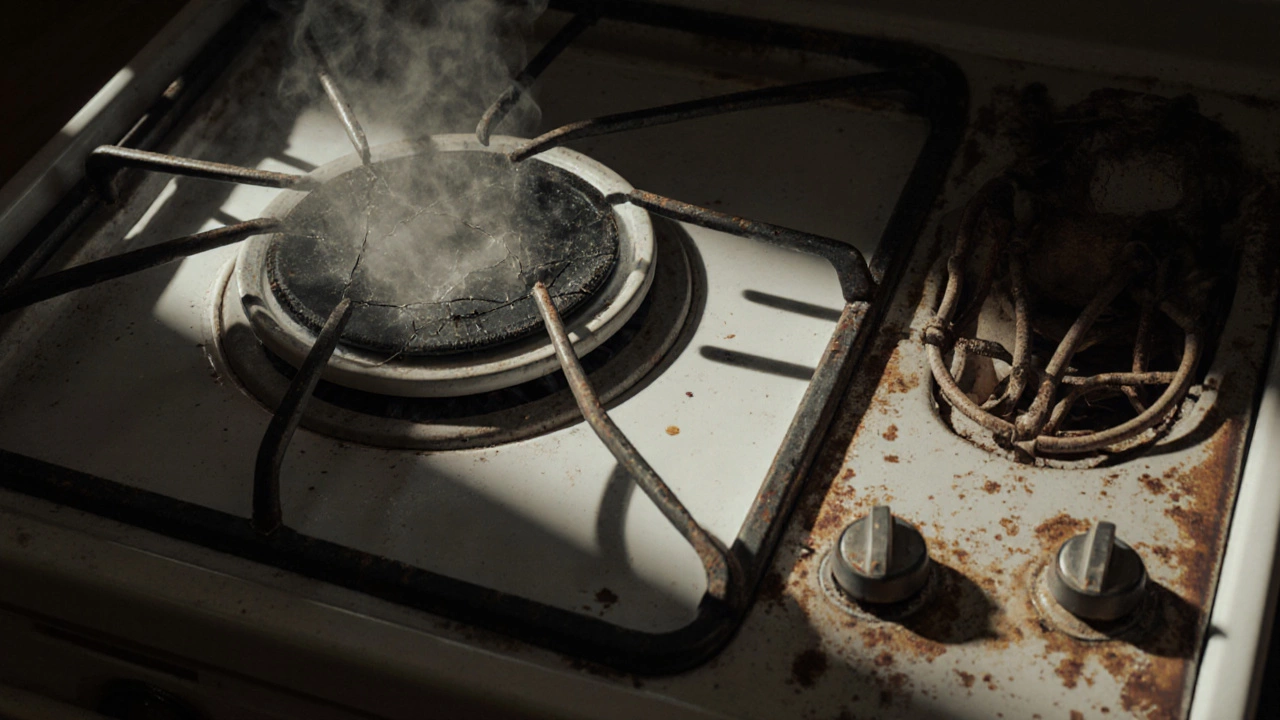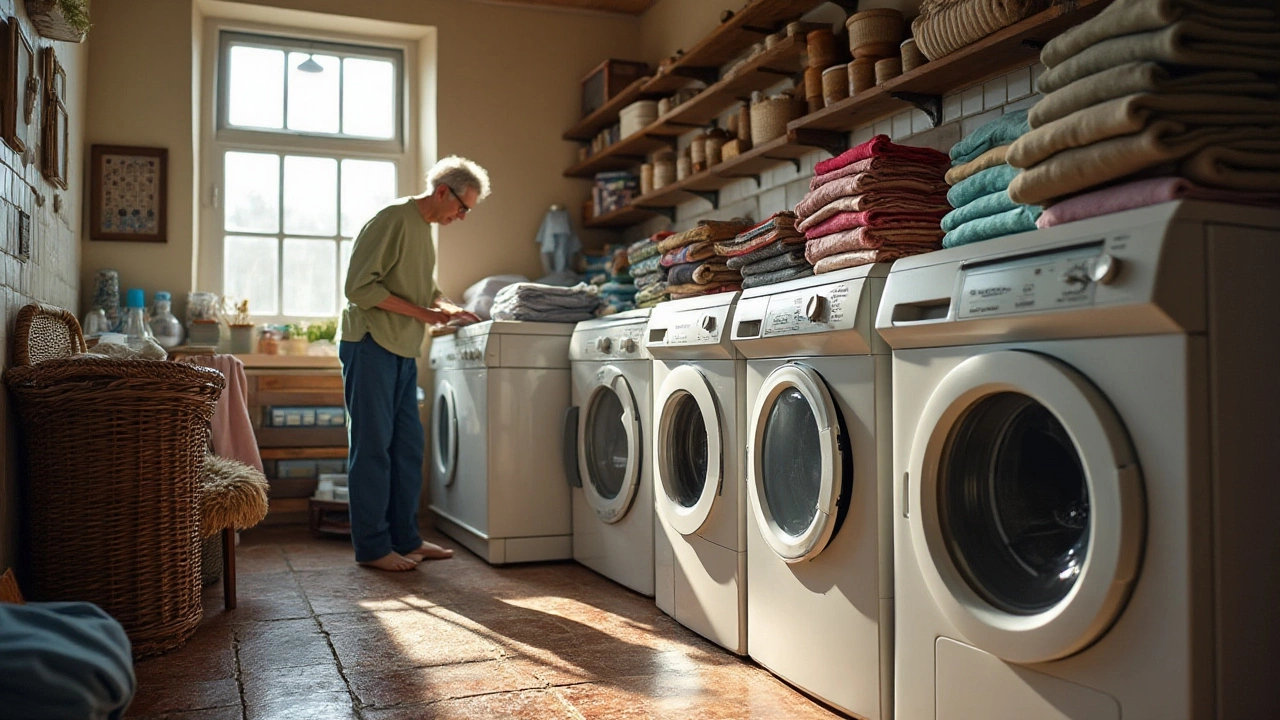
Most electric stoves last 13-15 years with proper care, but signs like slow heating, glitchy controls, or sparking mean it’s time to replace it. Learn when to repair and what to look for in a new model.
Ever wonder why your oven stops heating after a few years while the neighbour’s freezer still runs like new? It all comes down to durability. Different appliances have different life expectancies, and a few simple habits can add years to their useful life.
Oven & Hob: A well‑maintained oven usually lasts 15‑20 years. Glass hobs are a bit more fragile; expect 10‑12 years before the glass or heating elements need attention. Cracked glass or uneven heating are signs the hob is reaching the end of its useful life.
Dishwasher: Most models hit the 8‑12 year mark. If you notice water pooling at the bottom, a noisy pump, or persistent smells, those are early warnings that a costly part may be failing.
Washing Machine: Expect 10‑14 years. Look out for drum leaks, excessive vibrations, or error codes on the display. The motor and pump are the most expensive parts to replace, so weigh repair costs against a new machine’s price.
Boiler: Boilers are built to last 10‑15 years, but regular servicing can push them toward the higher end. A sudden drop in heating efficiency, strange noises, or rust on pipes means it’s time to call a professional.
Extractor Fans & Bathroom Fans: These typically survive 8‑12 years. A motor that stalls or a fan that makes grinding noises is a clear sign it needs cleaning or replacement.
Hard water, frequent on/off cycles, and over‑loading are the biggest culprits. A dishwasher packed to the brim forces the pump to work harder, while an oven that’s always on at high temperature can stress heating elements.
Skipping regular cleaning accelerates wear. Grease buildup on a hob’s burners or dust on a fan motor’s bearings reduces efficiency and can cause premature failure.
Using the wrong type of detergent or washing on the wrong cycle shortens a washing machine’s life. The same goes for using non‑compatible cookware on a glass hob – it can crack the surface.
1. **Schedule annual servicing** for boilers, ovens, and large appliances. A quick check catches wear early.
2. **Clean filters and vents** regularly. A clogged dishwasher filter or a dusty extractor fan can overheat components.
3. **Avoid over‑loading**. Give dishes space to move, and load washing machines according to capacity.
4. **Use the right settings**. Running an oven on a low bake setting when you need a high temperature wastes energy and stresses elements.
5. **Treat hard water**. Install a water softener or use descaling agents for appliances that see a lot of water, like kettles and dishwashers.
When an appliance shows signs of trouble, compare the repair quote to the cost of a new unit. If the fix is more than half the price of a replacement, it usually makes sense to buy new – especially for items with long expected lifespans like boilers.
By knowing typical lifespans, spotting early warning signs, and staying on top of basic maintenance, you can make smarter decisions about when to repair and when to replace. That way, you’ll get the most value out of every appliance in your home.

Most electric stoves last 13-15 years with proper care, but signs like slow heating, glitchy controls, or sparking mean it’s time to replace it. Learn when to repair and what to look for in a new model.

Understanding how long a washing machine should last involves considering various factors such as the type of machine, frequency of use, and maintenance practices. While most washing machines are designed to last between 8 to 12 years, proper care can extend this timeline. It's important to identify signs of wear and tear early and know when it's more cost-effective to repair or replace your machine.